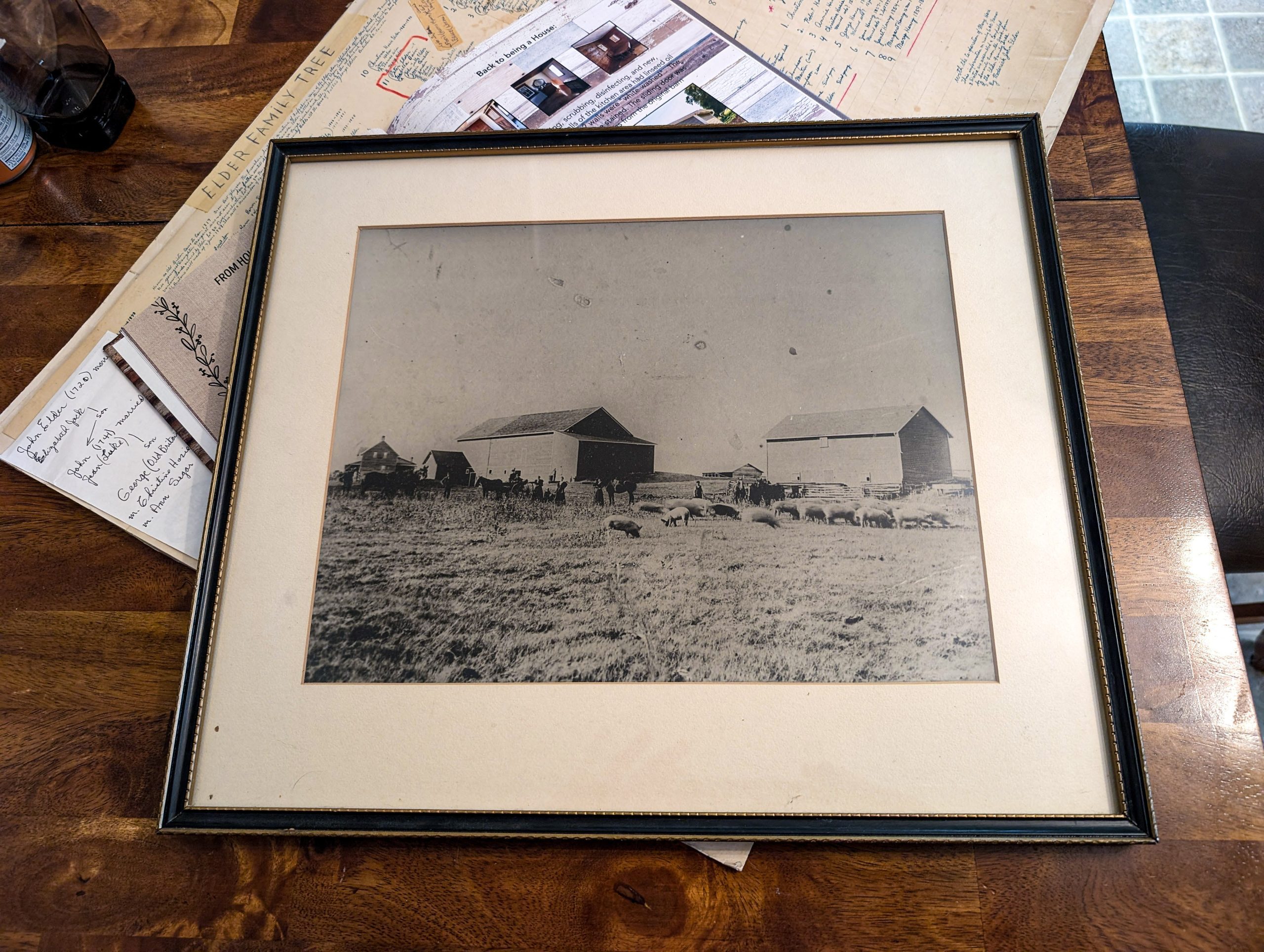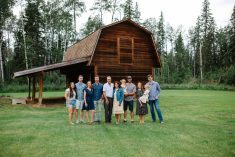The Irish government thought it was such a great idea. The year was 2007, and in Ireland, as in the Canada of that time, few farms were setting up formal transition or succession plans.
The Irish government had also begun asking itself what would happen when age or ill health finally pushes all those farmers into nursing homes without any transition plans.
And another question emerged too. Should the next generation be happy to just await around for Dad to pop his clogs before they finally get their peek at the books and can start making actual career plans.
Read Also

Why you should preserve your farm’s history
There was a big cast iron dinner bell in the middle of the farmyard where Maggie Van Camp grew up….
Won’t too many of the good ones leave?
So what was a government to do? In Ireland, one idea seemed brilliant. The government put a bunch of money in a pot that it promised to hand out to retiring farmers. But to get their share, qualifying farmers in the age range of 55 to 66 had to make a promise of their own.
Basically overnight, they had, as the documents said, “to cease all agricultural activity forever.”
It didn’t take long for the bright idea to flop. “That policy document was ignorant to the farmers’ mindset,” says Shane Conway of the Rural Studies Centre at the University of Galway, who has done extensive research into the factors affecting the farm succession process.
The retirement scheme died within a year, and since then, things have changed a lot, thanks in part to Conway and also to other researchers across the globe who have discovered farm attitudes are remarkably consistent around the globe.
In 2020, for instance, Conway did a major study in Iowa and found that farm attitudes there and in Ireland were nearly identical, despite huge differences in the farms and their climates.
“The similarities are striking,” Conway says. “The farm succession process still puts a lot of emphasis on ensuring that the next generation is prepared to take on the farm business and lead it into a new era … and there is very little focus on the older farmers and their future.”
The older generation gets ignored, despite the growing consensus that when that happens, succession rarely succeeds.
Now, international research through the FarmTransfers Project has also shed light on how startlingly similar and powerful are the emotional and social values that older farmers attach to their life’s work, and how the transition process grinds to a halt when these values are ignored.
Yes, it’s partly because self-esteem is involved, says Conway. But, as he has revealed in a series of high-profile studies, there’s also the reality of family power dynamics.
It all means that transition needs to focus equally on the incoming and the exiting generations.
Issue 1: The farm yard
As a first step, Conway suggests creating national organizations specifically charged with looking at both the opportunities and the challenges faced by older farmers, similar to the way we have organizations for young farmers.
In fact, he says, the concern is so big, serious thought should go into establishing a national social organization for older farmers in line with the World Health Organization’s age-friendly environments concept for fostering healthy aging.
The federal government in Canada does promote age-friendly communities, but as elsewhere, the program focuses on cities rather than rural networks.
Importantly, Conway also believes we need a shift in the cultural norms around succession, and that this shift must start at the educational level. Several recommendations have come out of Conway’s research, including the suggestion that universities and colleges introduce a compulsory intergenerational farm transition planning module.
It’s an approach that has been tried in Iowa by John Baker at Iowa State, where he is part of the human aciences extension and outreach program.
“In order to get some of the course credits they had to take part in a succession planning workshop with their parents,” says Prof. Matt Lobley of the University of Exeter in the United Kingdom, who co-developed the FARMTRANSFERS project with Baker. “They would gradually begin identifying their hopes for the future, and discuss their fears and what they wanted to happen. I think that’s a really good model.”
Lobley also believes another step in the right direction will be to include succession planning as a required component of the business plan that banks require when farmers seek financing, as it would start encouraging farm owners and their families to begin a formal transition process.
In Canada: Men’s Sheds
That still leaves the issue that may be the thorniest of them all. The reality is, men and women retire differently. Women often look forward to retirement because it means they have more time to spend pursuing their interests and be with family and friends. Men, conversely, define themselves more by their work and can lose their purpose and can end up lonely, isolated and depressed.
In Canada, a social initiative called Men’s Sheds is trying to address many of these issues. The Men’s Sheds movement started in Australia in 2007 and now has chapters in Ireland, England, Scotland, and most recently, Canada. It provides communal spaces where men can get together to socialize in a way that is more appropriate for their demographic, which generally means engaging in activities like woodworking projects, cooking, bike repairs, music, and “yelling at the television during the playoffs.”
The first Men’s Shed in Canada was established in Winnipeg in 2015 by Doug Mackie, who wanted to do something to fill what he saw as a gap in terms of support for aging men in the community. Mackie received the Manitoba Make a Difference Community Award in 2021 for his efforts.
“There are community-based organizations that are mixed gender or specifically for women, but Mackie was looking for something that would be unique to men,” says the Dr. Corey Mackenzie of the University of Manitoba’s Aging and Mental Health Laboratory, which has been working with the Canadian Men’s Sheds Association to help develop some resources.
“Doug often talks about the fact that men tend to be in relationships differently than women,” Mackenzie says. “If you want to get a bunch of guys talking, you know it’s not ideal to sit them around a table, it would be better to sit them around a broken lawnmower.” Or in the case of retired farmers, a tractor.
That’s definitely something that farmers can relate to.
“There’s been 15 or more years of research that’s gone into exploring Men’s Sheds, and there is growing support for the fact that Men’s Sheds provides a kind of social connection piece,” Mackenzie says.
Although not designed as a social program specifically for farmers, Men’s Sheds could offer a good model for rural areas where farmers could shape them to help fill the void that many men feel when they are no longer actively involved in day-to-day farm operations.
Canada has 26 Men’s Sheds across the country, each taking on the personality and needs of the people involved, which is part of the appeal because there is no set formula or requirement.
Now, Mackenzie’s group has developed a toolkit for men who are thinking about starting a shed.
It’s also essential to build awareness that retirement is a global issue.
There are many personal, social and cultural barriers that appear to weigh on farmer decisions to retire — or not. Again, they are similar across different countries and farms, but they often come down to one simple thing: fear.
Real progress, these researchers say, will probably take some combination of research and education, action by farm organizations, and new groups for retiring farmers.
It that sounds like a lot, the researchers say that it pales in comparison to all the inefficiencies that are created by the world’s stalled transition process.
Conway himself sees no option: “Existing attitudes towards succession must change.”
– This article was previously published in the December 2023 issue of Country Guide.
















